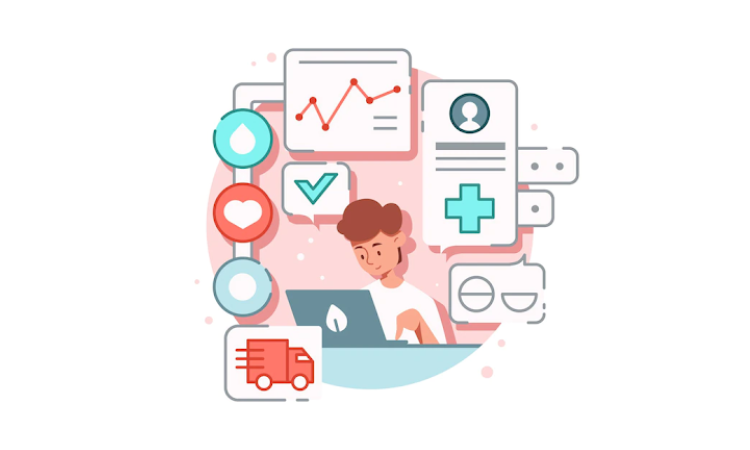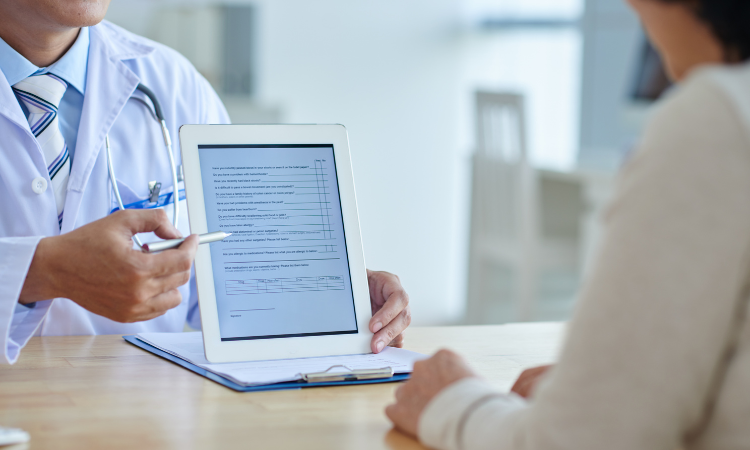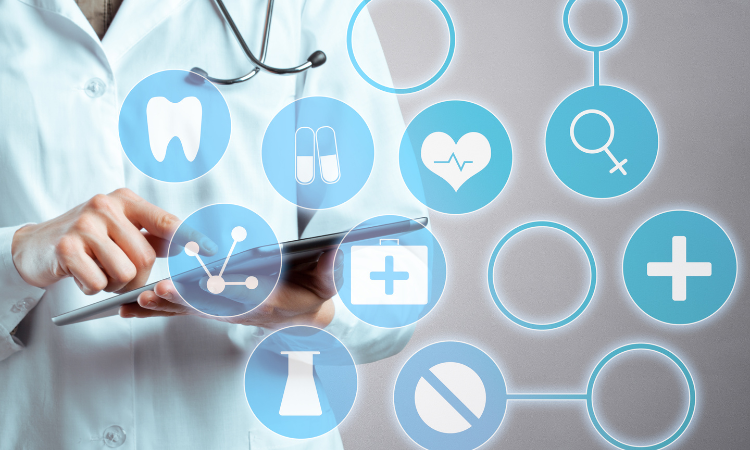The world of technology software for clinics is changing. The healthcare industry will not be left behind because applications are being developed to address healthcare providers' daily challenges. The current scenario demands enhanced clinical applications. It will make enhanced functional medical management possible.
The healthcare sector doesn't have an app store. But it's more tech-heavy and innovative than ever. Technology is critical in transforming the healthcare industry from wearable devices to mobile applications. Here, we take a closer look at the part and importance of medical app development. We will also explore the role of clinic software in the healthcare sector.
Mobile App Development in Healthcare
-
Reducing the Time Taken to Diagnose an Illness
Medical app development can help reduce the time taken to diagnose an illness. If you are running a clinic, you know how important it is to be able to diagnose diseases quickly. With the help of clinic software, you can reduce the time it takes to diagnose an illness.
This can be a huge time saver for your clinic. It can also help improve the quality of care your patients receive. Software for clinics can help reduce the time it takes to diagnose an illness. It works by keeping track of all the symptoms a patient is experiencing. This can be a big help when diagnosing a disease because it can help rule out particular possibilities. Understanding Trending Healthcare Mobile App Features can further enhance your clinic's efficiency by integrating innovative functionalities tailored to patient needs. These features play a pivotal role in modern medical app development by simplifying processes, improving diagnostics, and enhancing patient engagement.
In addition, clinic software can help track patients' medications. This can help diagnose an illness because certain medications can cause specific symptoms.
If you are looking for ways to improve the efficiency of your clinic, consider using clinic or custom healthcare software. In some cases, medical apps can even diagnose patients without needing a doctor's visit. Using medical app development can reduce the time it takes to diagnose an illness and improve patient care.
2. Improvised Infrastructure
Medical app development has improved infrastructure in several ways. One of the most significant ways is providing access to information and resources that would otherwise be unavailable. This includes access to medical journals, research data, and patient records. This includes access to medical journals, research data, and patient records, making it easier to implement the best EHR for small practices to streamline data management and improve patient care.
Additionally, medical app development has facilitated communication between medical professionals and patients. This has led to better coordination of care and improved patient outcomes. Finally, medical app development has helped improve medical care delivery efficiency. This is led by streamlining processes and automating tasks.
3. Improved Healthcare Security
Medical application development has made significant improvements to healthcare security in recent years. These applications enhance the security of healthcare data and systems. With this, It improves the overall safety and privacy of healthcare information.
One of the critical ways that mobile app development has improved healthcare security is through the use of secure and encrypted communication channels. Many medical apps use secure protocols and encryption.
It helps to protect the confidentiality and integrity of healthcare data. The data is protected as it is transmitted between devices and systems. This can help to prevent data breaches. It can protect against unauthorized access to sensitive information. In addition, implementing ASPM security practices helps identify and address security vulnerabilities in medical apps, further strengthening their protection against potential threats.
Medical app development has also improved healthcare security through secure authentication and access controls. Many clinic management software uses biometric authentication methods. Moreover, the implementation of OpenID Connect (OIDC) protocols ensures secure, simple, and standardized authentication for users, further enhancing data security. Organizations must also stay vigilant against compliance risks by regularly consulting the OIG LEIE and GSA Exclusion lists to avoid hiring ineligible individuals.
Moreover, the use of AngularJS has helped to speed up the app development process, reducing the time and cost involved in creating medical apps facilitating Magento Web Development. ModPod Podiatry clinic software streamlines diagnosing fungal toenail infections by efficiently tracking symptoms and medications, improving patient care quality.
These methods include fingerprint scanning or facial recognition to ensure that only authorized users can access sensitive data. This can help to prevent unauthorized access to medical records and other sensitive information.
In addition, clinic software has improved the security of healthcare systems by enabling remote monitoring and telemedicine. These technologies allow healthcare providers to monitor patients remotely and provide care remotely. It can help to reduce the risk of infection and other healthcare-associated complications.
4. Digitalization of Medical Records
Digitalizing medical records has been a critical driver of medical app development in the healthcare sector. Electronic health records (EHRs) are digital versions of a patient's medical history. It can be accessed and shared by authorized healthcare providers. A TensorFlow development company can play a vital role in building AI-powered solutions that optimize EHR systems for better efficiency and decision-making.
EHRs can include a wide range of information. It includes medical history, diagnoses, treatment plans, and test results. One of the main benefits of EHRs is that they can be accessed and updated in real-time. This gives healthcare providers a more complete and up-to-date view of a patient's health.
It can help providers make more informed treatment decisions and improve patient care. EHRs also make it easier for healthcare providers to share information. This can be particularly useful in emergencies or when patients receive care from multiple providers, making EHR for private practice a crucial tool for enhancing coordination and patient outcomes.
5. Cost-Effectiveness
Medical app development can contribute to cost-effectiveness in the healthcare sector in several ways. One of the main ways is by reducing the need for in-person visits and hospitalizations. It can be expensive for both patients and the healthcare system.
Patients can use an app to communicate with their healthcare provider remotely rather than visiting a clinic or hospital in person. This can be particularly useful for patients with chronic conditions. Simplifying video calls with the best video calling APIs can enhance the telemedicine experience, making it easier for patients to connect with their healthcare providers virtually.
Another way that medical app development can contribute to the cost-effectiveness of healthcare is by improving patient outcomes, ultimately reducing overall app development costs. Medical apps can help people stay healthy and avoid costly hospitalizations or medical interventions. This can lead to cost savings for both patients and the healthcare system. It also improved the quality of life for patients. Moreover, this can help parents also replace what pediatricians do.
Get it For FreeFinal Thoughts
The rising popularity of mobile app development within the medical field can be attributed to various factors. Among these, the widespread use of smartphones and other mobile devices plays a significant role. This trend has greatly facilitated people's access to healthcare information and services while on the move.
It enables healthcare providers to offer their services through apps. It allows patients to schedule appointments, access medical records, and communicate with their providers remotely.
Another reason for the popularity of medical app development is the growing focus on preventative care and patient engagement. Healthcare providers can help people stay healthy and avoid unnecessary hospital visits. Additionally, integrating solutions like HIPAA Compliant Billing software ensures secure and efficient management of patient data, further enhancing trust and compliance in healthcare services.
With the use of clinic software, healthcare organizations can develop apps that are tailored to their particular needs. Incorporating healthcare app development into these strategies can further enhance patient care and operational efficiency, leveraging the expertise of specialized react developers. It can include clinic management software. It will track patient data, manage appointments, and provide educational information.
Overall, the popularity of medical app development in the healthcare sector is due to the higher engagement with patients—the ability to customize apps and the fact that it can save healthcare organizations time and money.



